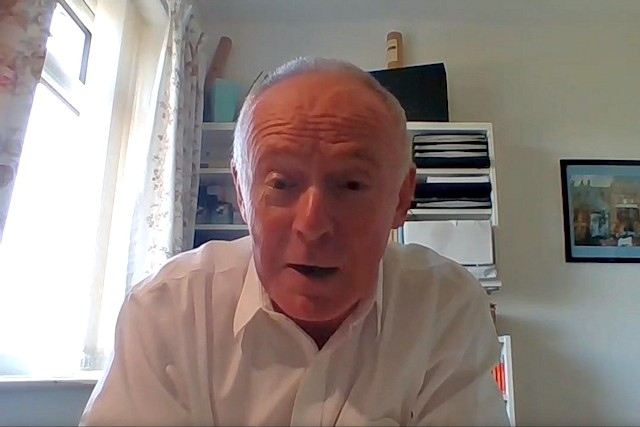‘We don’t think we’ve hit the peak’: more than 5,000 coronavirus cases in region
Date published: 23 April 2020

Sir Richard Leese, health and social care lead for the Greater Manchester Combined Authority
There have been more than 5,000 confirmed cases of coronavirus in Greater Manchester – and leaders say the region has not reached the peak yet.
A total of 1,008 people have died in hospitals due to Covid-19 across the region so far.
There were 5,065 confirmed cases of coronavirus in Greater Manchester on Tuesday.
At a press conference on Wednesday (22 April), Manchester City Council leader, Sir Richard Leese, who is responsible for the health and social care portfolio in Greater Manchester, said the region is approaching the peak of the coronavirus outbreak but has not hit it yet.
He said: “I understand that the Secretary of State has announced today that the UK as a whole has reached a peak. From the figures we’ve got, we don’t think we’ve got quite there in Greater Manchester yet.
“The number of cases has gone up although the rate of increase has slowed quite significantly. It was 5,065, the total number of cases yesterday, and that compares with 3,817 a week earlier so there’s still a substantial increase, but the rate of increase is slowing down.
“There’s also been an increase, sadly, in hospital deaths. That figure has just topped the 1,000-mark in Greater Manchester – 1,008. But again, we’ve seen the increase in that stabilise and it’s on a downward trajectory now.
“While any death is bad news, with the rate going down, the situation seems to be improving – that’s clearly good news.”
The number of hospital admissions for Covid-related reasons has been on a downward trajectory for around 12 days.
Over the last 10 days, the number of intensive care beds being used across the region has also fallen.
Only 55 per cent of total hospital capacity in Greater Manchester is being used at the moment.
Sir Richard added: “We don’t think we’ve hit the peak. A lot of this is not a precise science. The number of cases is continuing to increase.
“Certainly, the number of deaths has continued to increase. Although the number of people being hospitalised, and certainly the number of people in intensive care is going down.
“It may be that we are diagnosing more cases because as the epidemic has gone on, more people are presenting themselves with Covid-19 symptoms, so we know more about it.
“The signs are that we’re not at the peak, we’re approaching the peak because there’s a very clear levelling off taking place.
“I think if you look at the statistics around the country, you’ll see that different places have had different spikes at different times – they’ve had dips at different times.
“Clearly, the government figures are averaged across the country, but you’ll see that there are variations and that’s what we’re seeing here.
“I don’t think there are any particular reasons for it and I don’t think we’re particularly out of line with elsewhere.
“I think we used to describe ourselves as being maybe 10 to 14 days behind London. I think that’s probably still the case which does put us into a position that if we haven’t hit the peak, we should be doing it very, very soon.”
Joseph Timan, Local Democracy Reporter
Do you have a story for us?
Let us know by emailing news@rochdaleonline.co.uk
All contact will be treated in confidence.
Most Viewed News Stories
To contact the Rochdale Online news desk, email news@rochdaleonline.co.uk or visit our news submission page.
To get the latest news on your desktop or mobile, follow Rochdale Online on Twitter and Facebook.

